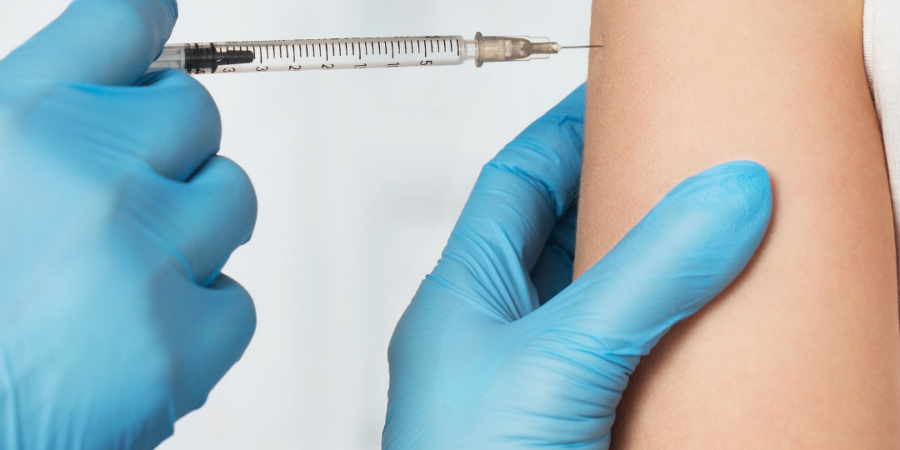



Protect yourself not only from the flu! Experts recommend vaccination against pneumococci
27 October 2020
The elderly and chronically ill are risk groups not only in the event of a threat COVID-19. People with respiratory and circulatory system diseases are particularly susceptible to complications from infections caused by seasonal influenza viruses and pneumococcus. While influenza vaccination has recently become widely recommended, knowledge about the risks associated with pneumococcus remains limited. Facilities NZOZ Your Doctor have vaccines against pneumococci. For any questions, please contact us at vaccinations@localhost. You can also book vaccination appointments via the hotline. 71 311 12 36.
We encourage you to read the information on pneumococci prepared by specialists from the National Institute of Hygiene as part of the VACCINATIONS INFO project.
Pneumococcal infections are caused by a bacterium called pneumococcus, which produces a polysaccharide capsule that determines its virulence and the occurrence of disease symptoms. Of the over 90 known types of pneumococcus, only some are dangerous to humans. Even 60% children attending nursery or kindergarten are carriers of pneumococcus. Carriers do not have symptoms, but infect other people
susceptible to infection and may become ill.
Symptoms and complications
Most often, pneumococci cause respiratory tract diseases, otitis media or sinusitis, and pneumonia. Pneumococci are the most common cause of otitis media, which in some children results in hearing loss or permanent deafness. Bacteria can enter the blood and cause meningitis, sepsis (septicemia), or pneumonia with bacteremia. If the most severe scenario occurs - invasion of normally sterile places and invasion of internal organs (so-called invasive pneumococcal disease), many children die or have permanent organ damage, especially the brain.
How many pneumococcal infections are there?
In the world, more than 1.5 million people die each year from pneumococcal infections, of which about 1 million from pneumonia. In Poland, doctors report only the most severe cases of invasive disease, of which more than 600 cases are registered annually. It is estimated that at least several thousand people suffer from pneumococcal pneumonia, and several dozen thousand from otitis media.
Pneumococcal vaccines
Conjugate vaccines and polysaccharide vaccines are available.
Conjugate vaccines owe their name to the modern technology used to create them (combination of polysaccharides isolated from bacteria with a protein carrier). These vaccines, depending on the number of types of pneumococci they protect against, are ten-component (PCV-10 vaccine) or 13-component (PCV-13 vaccine). Polysaccharide vaccines contain purified capsular polysaccharides of 23 types of pneumococci.
Conjugate vaccines are used in children from 6 weeks to 5 years of age (PCV-10 and PCV-13 vaccines) and in older children, adolescents and adults (PCV-13 vaccine) and protect against meningitis, sepsis, bacteremia, pneumonia and ear infections caused by the types of pneumococci included in the vaccine. These vaccines require 1-4 doses, depending on the child's age, and have high efficacy of 90-100% in preventing the most severe infections caused by the types of pneumococci included in the vaccine.
Polysaccharide vaccines are used in chronically ill and elderly people over 65 years of age and protect against pneumonia and invasive pneumococcal disease, mainly in patients with chronic respiratory diseases, circulatory system and immunodeficiencies. These vaccines have an efficacy in protecting against invasive infections at the level of 50-80%.
Mandatory (free) pneumococcal vaccines are administered to all children up to 2 years of age born after 31.12.2016. We administer the conjugate vaccine in a simplified 2+1 schedule. To children born by 31.12.2016 from high-risk groups for severe infection (up to 5 years of age) and those born prematurely, we administer the conjugate vaccine in a 3+1 schedule.
Pneumococcal vaccines are recommended (paid) for children over 5 years of age and adults who belong to risk groups, e.g. with chronic diseases with impaired immunity, alcohol addiction, smoking cigarettes, we administer: first the PCV-13 conjugate vaccine, and then after 12 months, the polysaccharide vaccine. Safety. Conjugate and polysaccharide pneumococcal vaccines are safe and well tolerated. After their administration, mild post-vaccination reactions may occur, such as redness, swell, tenderness to touch, pain at the injection site. Sometimes,
fever, irritability, restless sleep, decreased appetite, vomiting, diarrhea and rash.
Why is it worth getting vaccinated against pneumococci?
Vaccination protects young children from very dangerous complications that are common due to the widespread occurrence of pneumococcal infections. There are fewer hospitalizations for community-acquired pneumonia among vaccinated children up to 2 years of age.
Among the vaccinated, there is a lower incidence of otitis media, doctor visits and antibiotic therapy, and deafness. Universal vaccination of infants, who are a reservoir of pneumococci, provides indirect protection for the elderly, in whom pneumococcal pneumonia and its complications are very dangerous. Vaccination prevents the development of pneumococcal resistance to antibiotics.
Who we are
In our work, we are guided by the idea of a family doctor who provides the patient with comprehensive care at all times, not only when they are ill. Our mission is to take care of the health of residents on a daily basis. We provide health education and promote prevention.
Copyright © Wrocław 2021 NZOZ Your Doctor Sp. z o. o. All Rights Reserved.
Website created by KomuKoncept: www.komukoncept.pl






